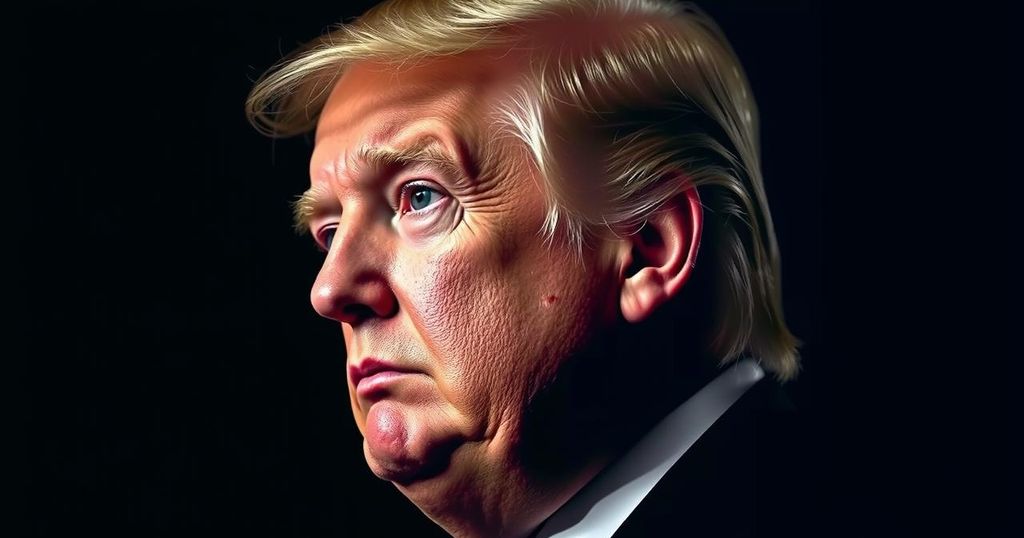Mike Waltz’s appointment as National Security Advisor marks a robust U.S. stance against China, highlighting heightened military readiness and a strategic pivot to the Indo-Pacific. His focus on U.S.-India relations bodes well for India’s defense partnerships while signaling challenges for U.S.-China ties amidst escalating tensions.
Mike Waltz has been appointed as Donald Trump’s National Security Advisor, a decision that signals a resolute approach towards addressing the challenges presented by the Chinese Communist Party. Historically, Waltz has advocated for a boycott of the 2022 Winter Olympics in Beijing, drawing attention to issues related to COVID-19’s origins and China’s treatment of the Uighurs. Together with Matthew Kroenig, he previously emphasized the necessity for the United States to pivot its focus from Europe and the Middle East towards the Indo-Pacific region, asserting that the core challenge lies within the scope of the Communist Party’s influence. As a strong proponent of bolstering U.S. military capabilities to deter potential Chinese aggression, particularly concerning Taiwan, Waltz underscores the significance of increasing defense spending and revitalizing the defense-industrial base. His stance comes at a time when U.S.-China relations are precarious, exacerbated by trade disputes and military tensions in the South China Sea. For India, Waltz’s role may be advantageous as he has been active in enhancing U.S.-India ties, particularly as a co-head of the India Caucus in Congress. This alignment is crucial for India, which is grappling with its own challenges with China, particularly along the Line of Actual Control. Waltz’s strategic focus could provide momentum to strengthen defense collaborations in line with shared Indo-Pacific security interests. Mike Waltz, aged 50, brings valuable experience from his military and Pentagon background, and has been critical of President Biden’s foreign policy. His appointment is consistent with Trump’s America First strategy, emphasizing national strength and security, a move that may lead to tensions with NATO allies who are wary of an American shift in focus from traditional alliances. Under Waltz’s leadership, the U.S. is expected to adopt a firmer stance on China while looking to deepen its strategic partnership with India. This could potentially lead to significant military collaborations and new bilateral agreements, particularly through platforms such as the Quadrilateral Security Dialogue (Quad), as the U.S repositions itself in the face of China’s growing influence. The next few months will be pivotal in shaping U.S. foreign policy, with Waltz expected to enhance military presence in the Indo-Pacific, signaling an era of increased defense preparedness and a united front with allies like India against common threats posed by China.
Donald Trump’s selection of Mike Waltz as National Security Advisor is pivotal, reflecting a strategic recalibration in U.S. foreign policy, particularly concerning Asia. Waltz is known for his hardline stance against China and has been instrumental in promoting U.S.-India relations. His past statements regarding the urgency of addressing the threats posed by the Chinese Communist Party indicate a shift in American military priorities, from predominantly addressing conflicts in Europe and the Middle East to a concentrated focus on the Indo-Pacific, where China’s influence is a significant concern. Waltz’s induction has implications not only for U.S.-China relations but also for India’s geopolitical landscape, providing the country with an ally in Washington as it navigates its own challenges with China.
In conclusion, Mike Waltz’s appointment as National Security Advisor to Donald Trump heralds a significant shift in U.S. foreign policy with immediate implications for both China and India. His strong military focus aimed at countering Chinese aggression and bolstering U.S.-India defense ties presents both challenges and opportunities in the context of strained U.S.-China relations. The path forward for global diplomacy will likely pivot around his strategic agenda, emphasizing military readiness and enhanced partnerships through collaborative efforts in the Indo-Pacific.
Original Source: m.economictimes.com






